Music Education Helps Develop Key Components Of Innovation
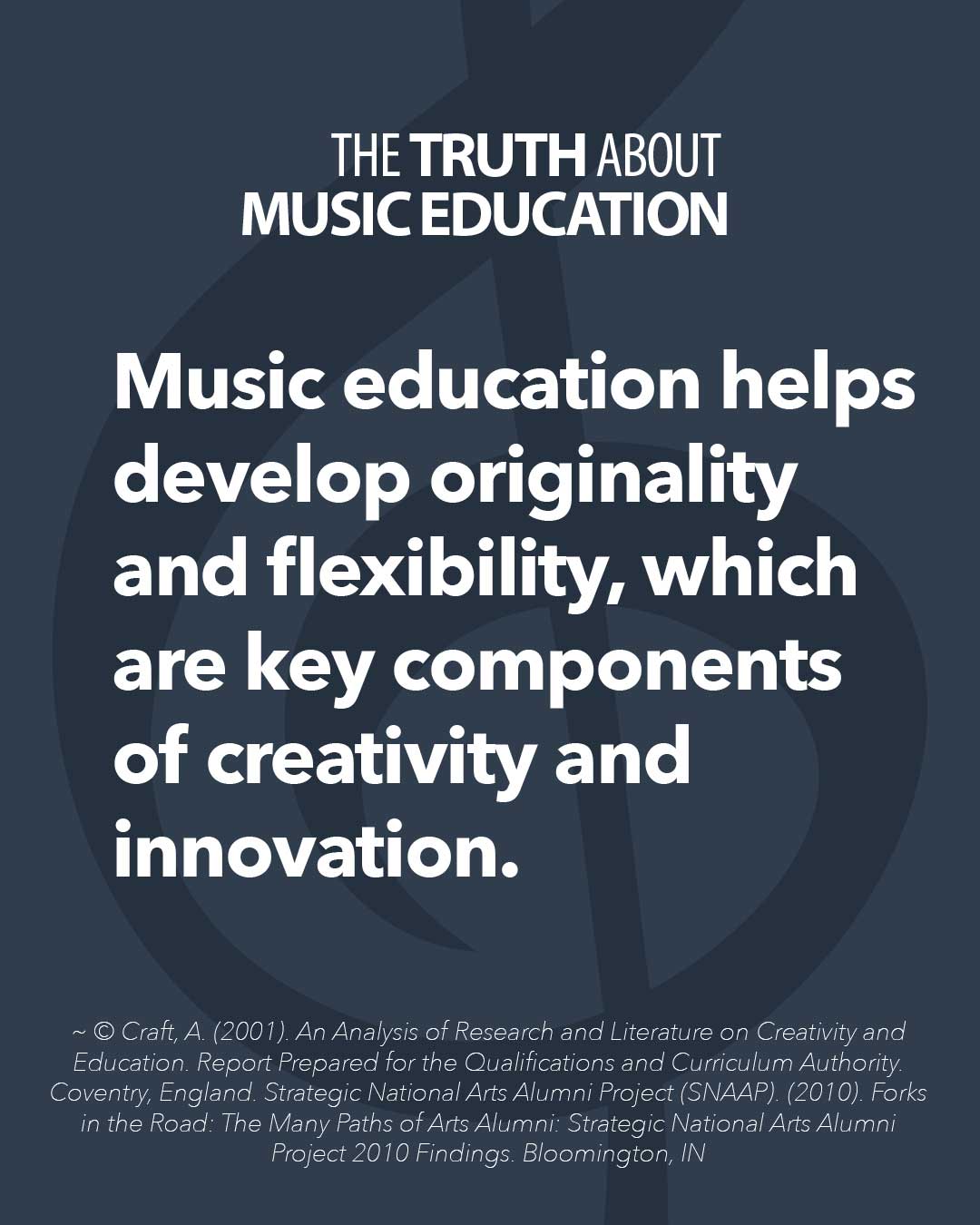
Music education helps develop originality and flexibility, which are key components of creativity and innovation.

Music education helps develop originality and flexibility, which are key components of creativity and innovation.
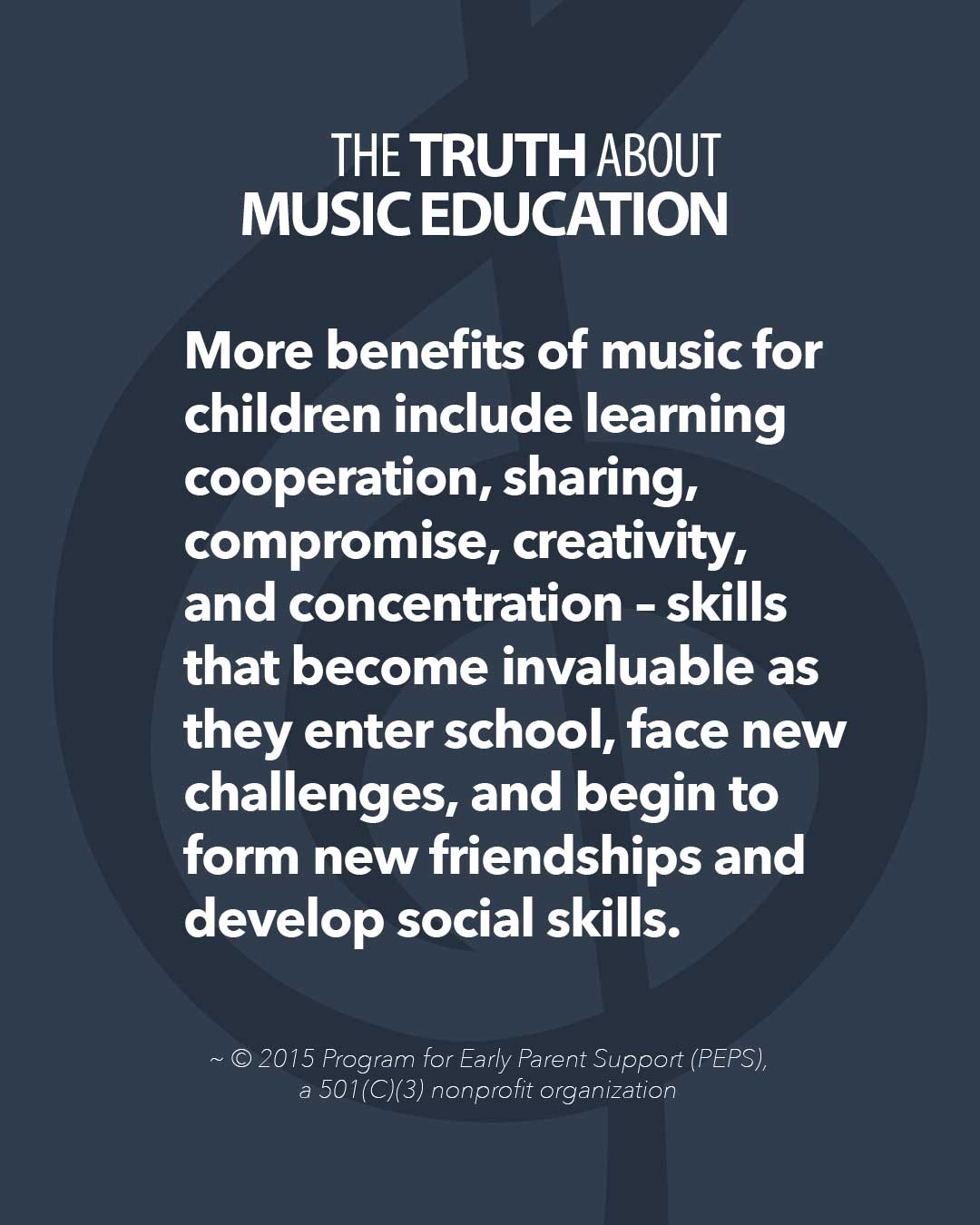
More benefits of music for children include learning cooperation, sharing, compromise, creativity, and concentration – skills that become invaluable as they enter school, face new challenges, and begin to form new friendships and develop social skills.
Our staff spotlight for June is on Jon Sturm. Jon currently works in our string repair department and has been with us for 5 years. Please take a few minutes to learn more about Jon by watching his interview below.
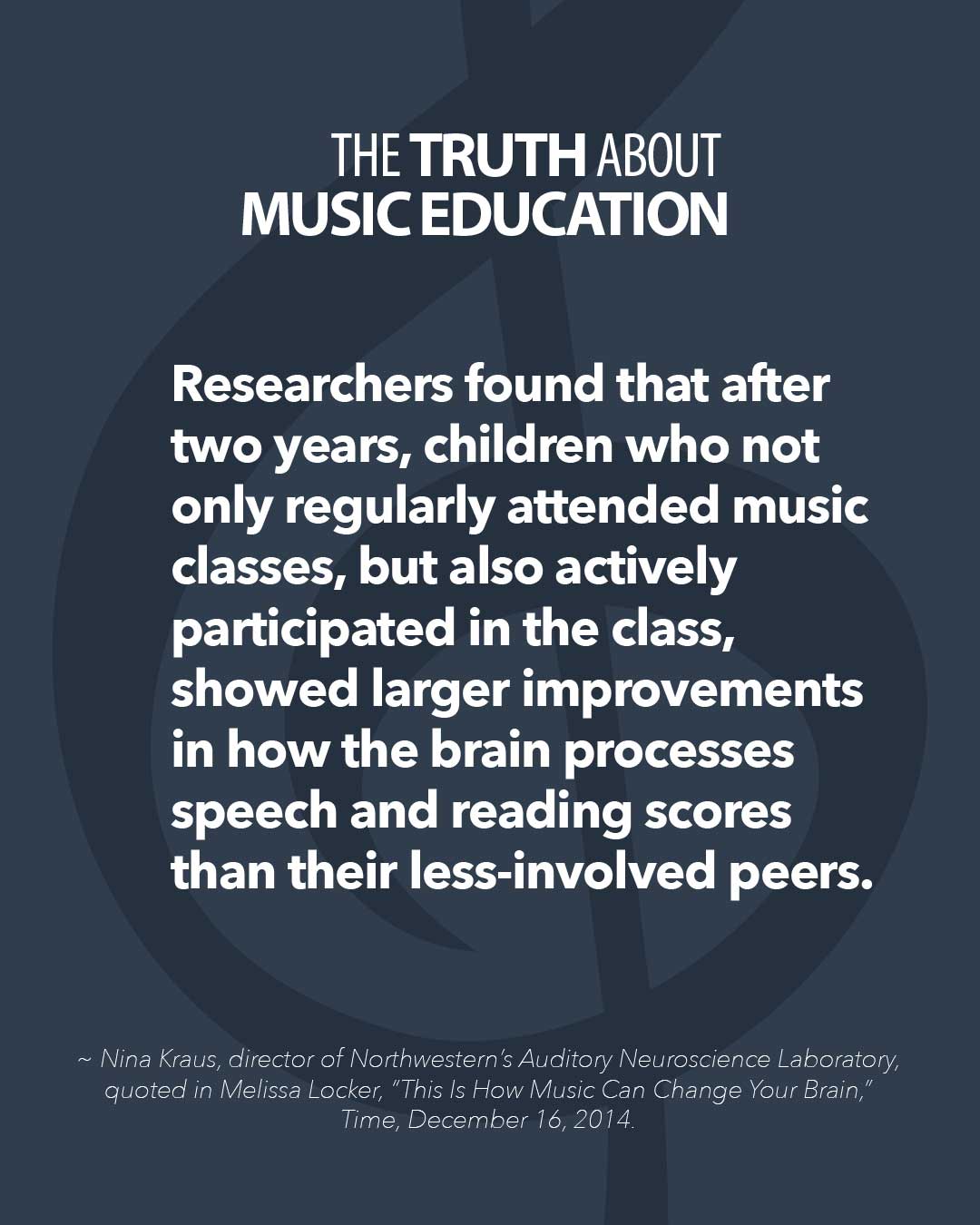
Researchers found that after two years, children who not only regularly attended music classes, but also actively participated in the class, showed larger improvements in how the brain processes speech and reading scores than their less-involved peers.
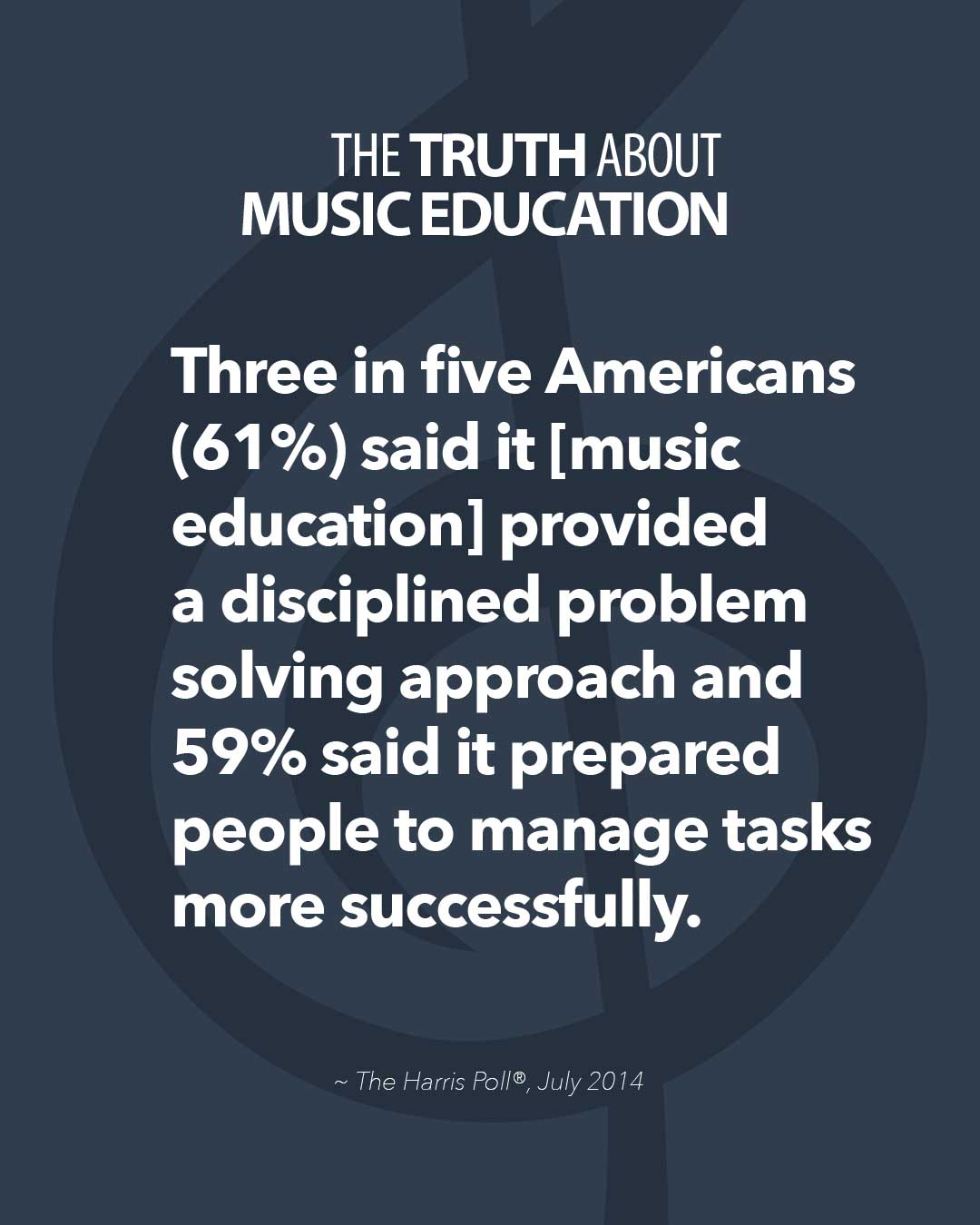
Three in five Americans (61%) said it [music education] provided a disciplined problem solving approach and 59% said it prepared people to manage tasks more successfully.
We recently updated the care videos for several of the beginning instruments available on our Debut Rental Program. Below is the general care and maintenance video, with instruction given by Sam Motter of our Retail Sales staff.
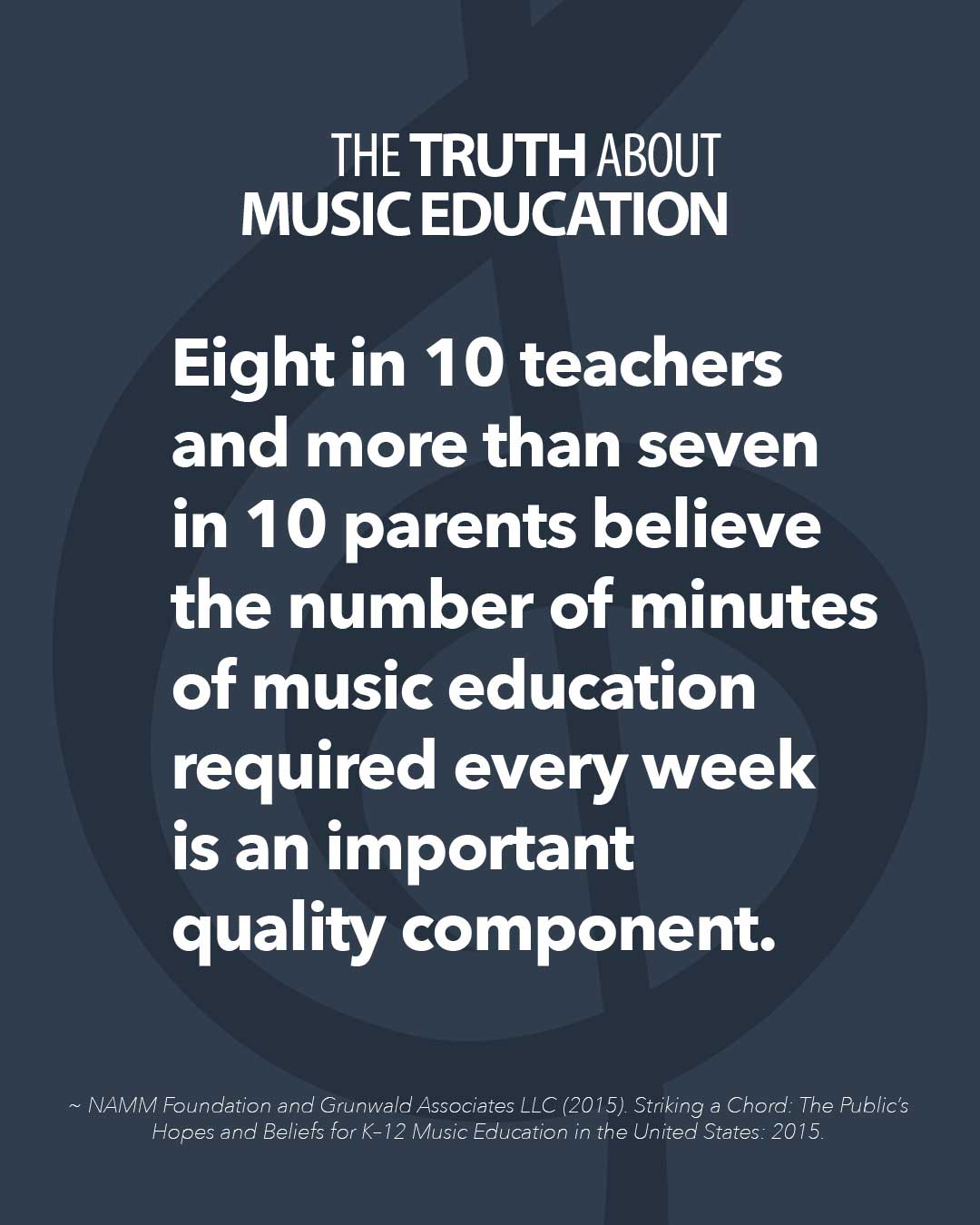
Eight in 10 teachers and more than seven in 10 parents believe the number of minutes of music education required every week is an important quality component.
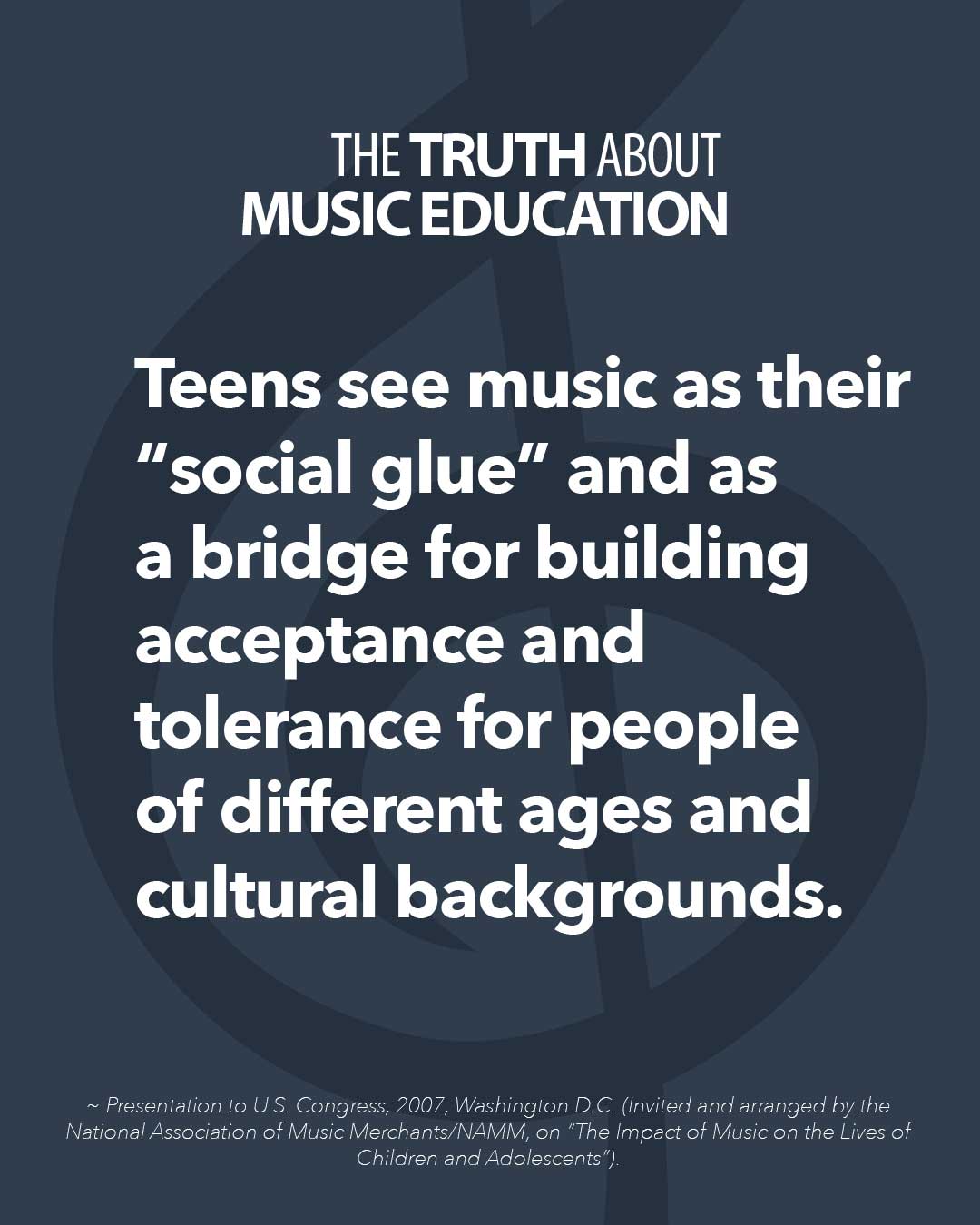
Teens see music as their “social glue” and as a bridge for building acceptance and tolerance for people of different ages and cultural backgrounds.